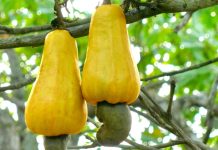In the beginning, people used to eat mostly vegetables and fruits. Perhaps, this was the reason why during the time of the Old Testament in the Bible, people lived longer – almost 1,000 years old!
But as years went on, more people ate less fruits and vegetables and more meat. Today, people get to live until 100 years or even less. It’s a big celebration if a person turns 100 years old.
So, why don’t people return to the beginning – eating mostly fruits and vegetables. Aside from living longer, fruits and vegetables make you feel healthy, energetic and young. The reason: they are loaded with vitamins and nutrients that our body needs daily.
The finding of a study conducted by the United States Department of Agriculture and Health and Human Services said that an average person need to consume two cups of vegetables and 2 cups of fruits a day!
But before going to specifics, let’s take a closer look on the health benefits of fruits and vegetables. In their collaborative book, “Doctors’ Health Tips and Home Remedies,” Dr. Willie T. Ong and his wife, Dr. Liza Ong, enumerates seven benefits of eating fruits and vegetables:
You get all the vitamins you need. “Fruits and vegetables are rich in fiber, vitamin A, B, C, folate and potassium,” says Dr. Liza Ong, a general practitioner who also studied nutrition at the University of Wisconsin in Madison. “Dietary fiber lowers cholesterol and heart disease. Vitamin A is good for the eyes and skin, while vitamin C makes wound heal faster. Potassium is essential for the heart and exercising individuals, and folate is a must for pregnant women and the unborn child.”
You lower your risk for cancer, heart disease and diabetes. According to studies, eating fruits and vegetables can lower cancer risk by 3%-10%. “You also lower your type 2 diabetes risk by 14% if you increase your intake of green leafy vegetables,” says Dr. Willie Ong, an internist-cardiologist who was given the Outstanding Filipino Physician by the Department of Health in 2007. “If you want to reduce your cancer risk further, avoid smoking and drinking alcohol.”
Your bowel movement will improve. The fibers found in fruits and vegetables act just like a broomstick and clean the insides of the intestines. In addition, you need to reduce your intake of meats and fats, which are both low in fiber.
You can maintain your weight. Vegetables and most fruits are low in calories and therefore won’t make you fat. Now, if you want to lose weight, the best thing to do then is to eat more fruits and vegetables.
You can fight stress. In these days of crass materialism, stress is a way of life. Vegetables are rich in B vitamins, which are needed by the nervous system and reduce stress. Bananas contain tryptophan and can also combat stress. Many people feel better and “cleaner” when they eat fruits and vegetables.
You can beat heat. During the hot weather, choose to eat fruits with a high water content such as melon, watermelon and coconut juice.
You will stay younger. A study done in England has identified four bad habits that can make you age 12 years faster. These are smoking, drinking too much alcohol, not having or lack of exercise and eating a diet low in vegetables and fruits.
Now, the specifics. For active women below 50 years of age, the recommended amounts are 2 cups of vegetables and 2 cups of fruits per day. For less active women above 50 years old, they have to consume 2 and a half cups of vegetables and 2 cups of fruits d3 cups of daily. The same amount is recommended for boys and girls.
For active males, the recommended amounts are 3 cups of vegetables and 2.5 cups of fruits a day. For less active males, 2.5 cups of vegetables and 2 cups of fruits are needed each day.
“However, these are just suggested amounts and there is no harm in eating more as long as you don’t gain weight,” the Ongs pointed out.
The question now is: how do you measure a cup? Here are some examples: 1 cup of fruits is equal to 1 big apple, 1 large orange, 8 large strawberries, 1 medium-size mango, and 2 small bananas. With that in mind, if you need to eat 2 cups of fruits a day, it could be a combination of 1 apple and 2 bananas or 8 strawberries and 1 mango. “Chose a mixed combination to obtain various vitamins and nutrients the body needs,” the Ongs suggested.
A cup of vegetable is easier to determine. A small platter of vegetables sold in canteens would roughly fill a cup. For vegetables with flat or irregular shapes, a bowl of lettuce or 8 broccoli florets is approximately a cup.
The Ongs listed the following as the healthiest vegetables: malunggay, kangkong, pechay, ampalaya, eggplant, okra, camote tops, broccoli, cauliflower, and spinach.
However, the husband-and-wife physicians prefer green leafy vegetables as they contain varying amounts of fiber, potassium, calcium, folate, iron and vitamins A, B, and C. “Here are the few of the diseases the green leafy vegetables can help: heart disease, high cholesterol, high blood pressure, type 2 diabetes, bowel problems, irritable bowel syndrome, various cancers of bowel (mouth, stomach and colon cancers), kidney stones and many more,” they wrote.
According to Dr. Liza Ong, “vegetables are excellent fiber foods because they’re low in fat, low in calories and high in fiber.”
As for the fruits, these are banana, apple, orange, dalandan, papaya, strawberry, grapes, watermelon, melon, coconut, avocado and pineapple.
Among the local fruits, banana is the best, the Ongs claimed. “The banana is nature’s wonder fruit and the perfect fast food,” they wrote. “It’s rich in potassium, vitamin B6 and folic acid. The high potassium content prevents cramps and gives ready energy with its easily digestible starch. Its potassium content is also perfect for patients on water pills (diuretics) and those with heart disease and hypertension.”
As for meats, the two physician-authors recommend that they be eaten less. “Experts recommend that a person eats an average of 6 ounces of protein (60 grams), which is the size of two decks of cards,” they wrote. “Protein can come in the form of lean meat, chicken or fish. The rest of your diet should come from fruits, vegetables and carbohydrates.”
In her book, 50 Secrets of the World’s Longest Living People, nutritionist Sally Beare debunks the myth that people need to eat large amounts of beef and pork in order to gain muscle. She writes that “the 800-pound gorilla thrives very happily on a vegan diet of vegetables, fruits, and nuts.” – ###






